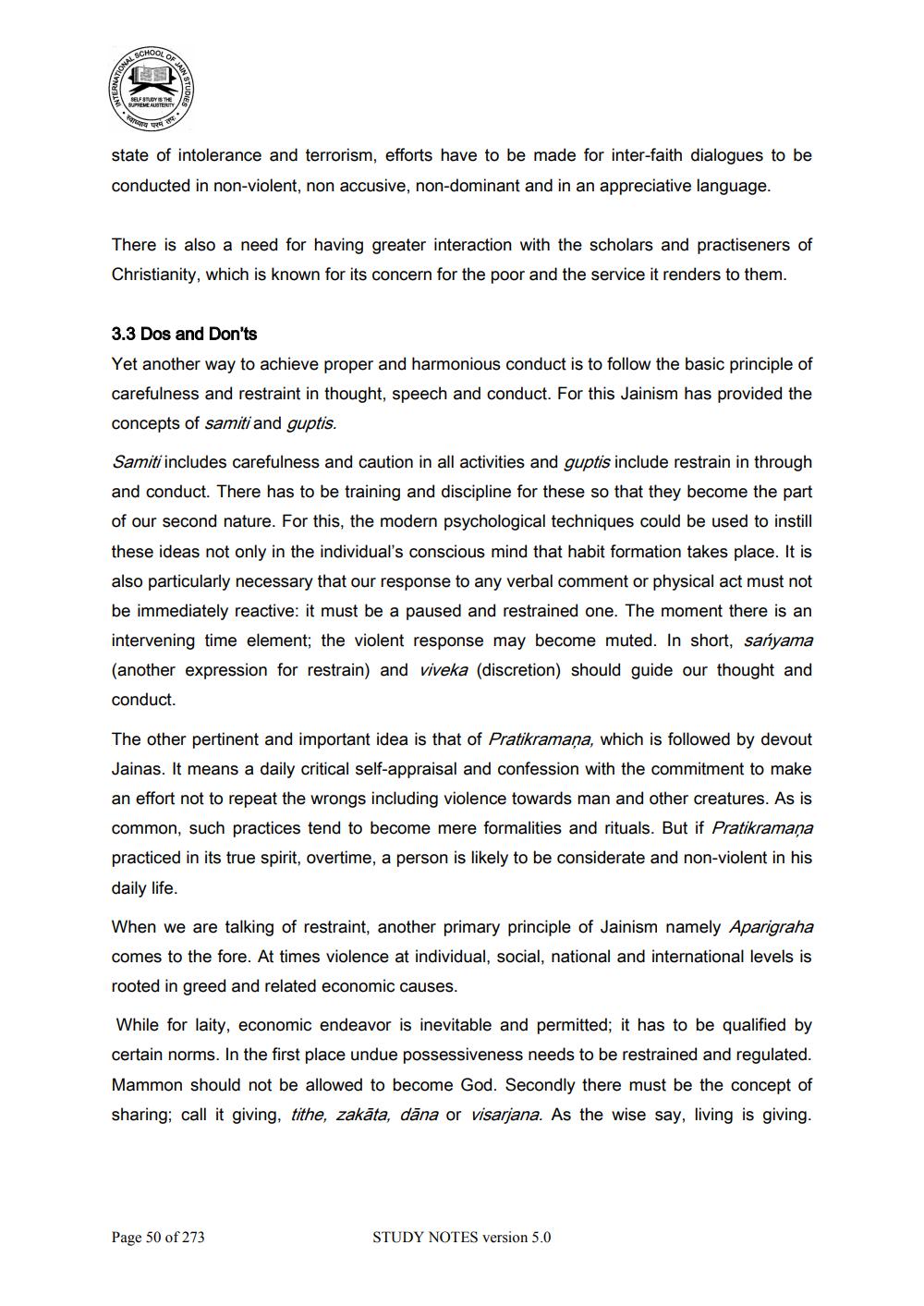________________
state of intolerance and terrorism, efforts have to be made for inter-faith dialogues to be conducted in non-violent, non accusive, non-dominant and in an appreciative language.
There is also a need for having greater interaction with the scholars and practiseners of Christianity, which is known for its concern for the poor and the service it renders to them.
3.3 Dos and Don'ts Yet another way to achieve proper and harmonious conduct is to follow the basic principle of carefulness and restraint in thought, speech and conduct. For this Jainism has provided the concepts of samiti and guptis.
Samiti includes carefulness and caution in all activities and guptis include restrain in through and conduct. There has to be training and discipline for these so that they become the part of our second nature. For this, the modern psychological techniques could be used to instill these ideas not only in the individual's conscious mind that habit formation takes place. It is also particularly necessary that our response to any verbal comment or physical act must not be immediately reactive: it must be a paused and restrained one. The moment there is an intervening time element; the violent response may become muted. In short, sanyama (another expression for restrain) and viveka (discretion) should guide our thought and conduct.
The other pertinent and important idea is that of Pratikramaņa, which is followed by devout Jainas. It means a daily critical self-appraisal and confession with the commitment to make an effort not to repeat the wrongs including violence towards man and other creatures. As is common, such practices tend to become mere formalities and rituals. But if Pratikramaņa practiced in its true spirit, overtime, a person is likely to be considerate and non-violent in his daily life.
When we are talking of restraint, another primary principle of Jainism namely Aparigraha comes to the fore. At times violence at individual, social, national and international levels is rooted in greed and related economic causes.
While for laity, economic endeavor is inevitable and permitted; it has to be qualified by certain norms. In the first place undue possessiveness needs to be restrained and regulated. Mammon should not be allowed to become God. Secondly there must be the concept of sharing; call it giving, tithe, zakāta, dāna or visarjana. As the wise say, living is giving.
Page 50 of 273
STUDY NOTES version 5.0




